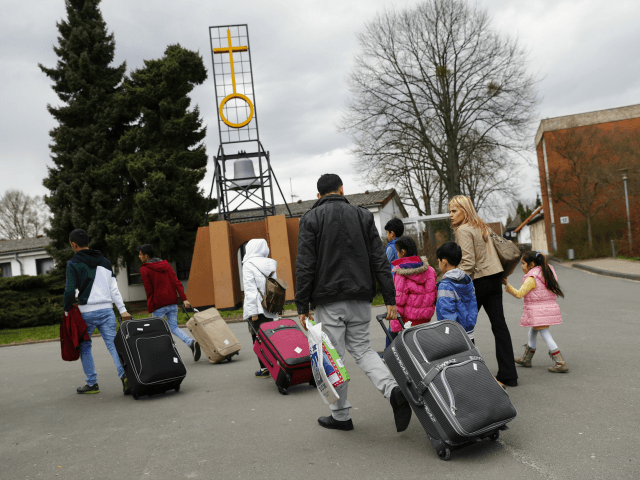Number Of Migrants Claiming Benefits In Germany Surges By 169 Per Cent

(REUTERS) – The number of migrants claiming German welfare benefits soared by 169 percent last year, data showed on Monday, a figure likely to further boost anti-immigrant groups such as the Alternative for Germany (AfD), which performed well in a weekend election.
Around 975,000 migrants were receiving benefits in accordance with the Act on Benefits for Asylum Seekers at the end of 2015, the Federal Statistics Office said. That marked the sixth consecutive yearly rise and compared with 363,000 in 2014.The leap followed Chancellor Angela Merkel’s decision a year ago to open Germany’s door to refugees fleeing war in Syria and elsewhere. Germany took in more than one million people, though the inflow has fallen sharply in recent months due to tighter European border controls and a repatriation deal with Turkey.
Monday’s data include migrants with temporary residence permits and those who cannot be deported for the time being. They do not include those with refugee status or those entitled to asylum, who receive social benefits if they need help.
While many Germans gave migrants a warm welcome when they started arriving in droves last summer, that has partly given way to fear after three recent violent attacks on civilians carried out by migrants and to concerns about integration.
Bolstered by such anxiety, the AfD took second place in Sunday’s election in the eastern state of Mecklenburg-Vorpommern, ahead of Merkel’s centre-right Christian Democrats. The AfD is now represented in nine of Germany’s 16 regional parliaments.
State spending on benefits for migrants climbed by around 120 percent in 2015 to almost 5.3 billion euros, the data showed.
The scale of state aid for migrants has angered many Germans, particularly in the poorer eastern regions, but on Saturday Merkel stressed the government had not slashed benefits for anyone in order to provide for refugees.
Almost two-thirds of the benefit recipients came from Asia, with half of this group coming from Syria, the data showed.
Another 22 percent hailed from European countries such as Albania, Serbia, Montenegro and Macedonia, which are all outside the European Union, while 13 percent came from Africa.
Of the migrants who received aid, 91 percent got basic benefits such as food, accommodation, clothing and health as well as durable and non-durable household items – mainly provided as benefits in kind, although they did get some cash for personal needs as well.






































No comments:
Post a Comment